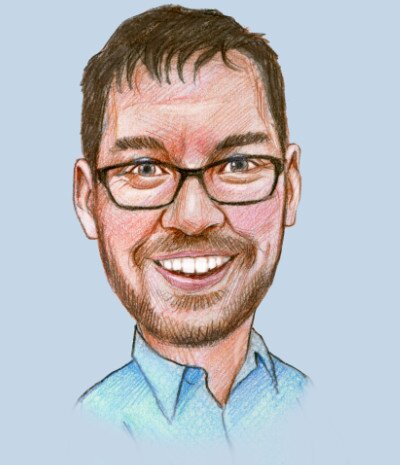“Best Of Both Worlds” Has A Third Episode
“Best Of Both Worlds,” part 1 was the Star Trek: The Next Generation episode that concluded its third season, and its heart — the capture of Jean-Luc Picard by the Borg, and his transformation into “Locutus” — is resolved in Season 4’s opening part 2. But the next episode, “Family,” in essence is the third part of the episode, and deserves to be remembered as such.
The Borg are absolutely terrifying: a race of cyborgs who “assimilate” humans and other species, robbing them of their individual wills and making them part of “the collective.” The episode has many highlights leading up to the encounter with the newly compromised Captain Picard, including the complete futility of the Enterprise against the Borg cube, Picard’s tour of the Enterprise in the nebula, and the arrival of the ambitious Commander Shelby.In some objective sense, we should know that the classic series at its absolute peak wasn’t going to sacrifice the captain of the Enterprise, but I cannot recall being as tense or surprised as I watched the first part of the episode for the first time. In fact, only the sufferings of David Tennant’s Alec Hardy can claim more of my emotional resources.
The second part of the episode has the Enterprise crew reckoning with not just the putative death of Picard, but the reality that his talents will be used by the Borg in an effort to literally enslave the human race, and the entire Federation. Indeed, Picard as Locutus would kill 11,000 people and destroy 39 starships at the battle of Wolf 359.
Will Riker must learn to jettison his reverence of Picard that manifests in imitation. He hears from Guinan that if Picard wrote the book on the Enterprise, he must throw the book away. Moreover, she says she’s let him go, and so must Riker. Even so, Riker nurtures a hope of kidnapping Locutus, saving Picard, and destroying the Borg cube threatening Earth. The rescue mission succeeds and Lt. Commander Data succeeds—with a revived Picard—in planting a destructive command in the program of the Borg cube, and the Federation is saved.
That brings us to “Family.” In that third part, Picard returns to his home village of La Barre in France to heal with his brother Robert’s family. They live in the house in which the boys grew up. Robert is played by the great Jeremy Kemp, who had previously played Armin von Roon in the Winds of War saga, which also includes War and Remembrance. He should have played O’Brien in the British film production of Orwell’s Nineteen Eighty-Four.
The two actors expertly play the two rival brothers who haven’t seen each other in nearly twenty years. Robert punches holes in Jean-Luc’s ego, they fight, and the captain breaks down from the guilt of having been forced to kill by the Borg. He realizes that indeed he has no intention of leaving the Enterprise to escape the pain.
The secondary stories center on Worf and Wesley Crusher wrestling with the deaths of their fathers. Worf, one of the non-human crew members of the Enterprise, must visit with his adoptive human parents, Sergey and Helena Rozhenko. He still struggles to integrate this human family into who he is as a Klingon. This is especially in light of the state of his Klingon family, the House of Mogh and its discommendation, accepted in the episode “Sins Of The Father,” in what will be a fruitless attempt to avoid a Klingon civil war.
Sergey and Helena make bids to empathize with all this, but Worf says that he must bear his dishonor alone. Sergey rejects this idea, and they both say they are with Worf. Sergey adds, “…and that we’re proud of you, and we love you.” It lands about as hard as it can, and I can be found weeping every time I hear it. Sergey Rozhenko was played by Theodore Bikel, who always was able to add heart to his various characters.
Wesley Crusher, meanwhile, receives a recorded visual message from his father on his 18th birthday. His father Jack was killed on an away mission as an officer serving aboard the USS Stargazer 13 years prior, under the command of Jean-Luc Picard. It also lands very hard, because I lost my father suddenly as a young boy. From myself to Wesley Crusher to Tom Cruise’s Pete Mitchell, this kind of wound leaves a unique mark, and these actors have conveyed it with expertise I sincerely hope they do not have by experience.
All this is to say that great drama is character-driven. Gene Roddenberry understood this, and all the actors have understood it. Science fiction is merely one “dialect” in the language of drama.
“Family” deserves its flowers as a part of the Borg storyline, and in the character development of Jean-Luc Picard, especially. Patrick Stewart plays a man who never had his own children and who said he wasn’t comfortable with children, and yet is a man so tender as to keep seemingly every memento of every child he served. “Family” shows him embracing vulnerability. Tenderness is indeed the affirmative use of vulnerability for the sake of others.

Jason Kettinger is Associate Editor of Open for Business. He writes on politics, sports, faith and more.
You need to be logged in if you wish to comment on this article. Sign in or sign up here.

Start the Conversation